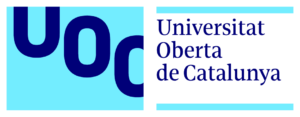We are getting ready the EASA Media Anthropology Network workshop and research project Critical Perspectives on Media and Social Change. The workshop will be held on 27 May 2011 at the School of Oriental and African Studies, University of London.
The workshop is preceded by an ongoing debate on the blog. The organizators have invited guest authors to collaborate to a common reflection about different perspectives on the topic. The centre of attention is the role of social media in the Arabian Spring, with the post of Mark Allen Peterson who express:
Egypt is currently in just such an experimental moment. It is not merely that social innovators have found many new politically powerful uses for digital media; the mainstream media finds itself in a period in which the political order that governed it for so long in gone, and no firm new order has yet emerged. Many social actors seek to organize a new national mediascape as close as possible to the old, while others seek to innovate, to borrow practices from elsewhere in the global mediascape and localize them. New narratives, and counternarratives of revolution are everywhere, and the shape of the new order remains ambiguous, unpredictable and shaped by the very narratives the various media produce out of their own uncertainty.
Annabelle Sreberny ask if we can talk about a Social Media Revolution and says that:
It is evident that both new and old media have played significant and fascinating roles in the recent insurrections to topple autocratic regimes from Tunis to Cairo and beyond. New media can no longer be considered the epiphenomena of political movements but are rather significant tools of political mobilization.
Other authors examine the “silent” social change, that is social change as a long-term social process that take place in everyday practices, such as Raquel Recuero, examining Social Media in Brazil:
Because Brazilians are using social network tools so strongly, this is leading to social changes in everyday life, politics, education and other fields. The emergence of online social networks has changed the way information circulates within the country, creating more awareness, actions and change.
Mark Hobart poses a warning related to the abuse of metaphors when studying Media and Change, because “how durable arguments are depends in large part on how theoretically rigorous they are rather than how fashionable their metaphors”:
The obverse face of emancipatory technologies is the link between capital, surveillance and power. Nowhere is such techno-utopianism more evident than in exaggerated claims for new media in development. One response is from anthropologists who study the social practices and relations of knowledge/power through which information becomes meaningful, and from cultural studies scholars who analyze how articulatory practices produce hegemony.
